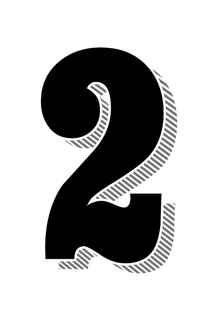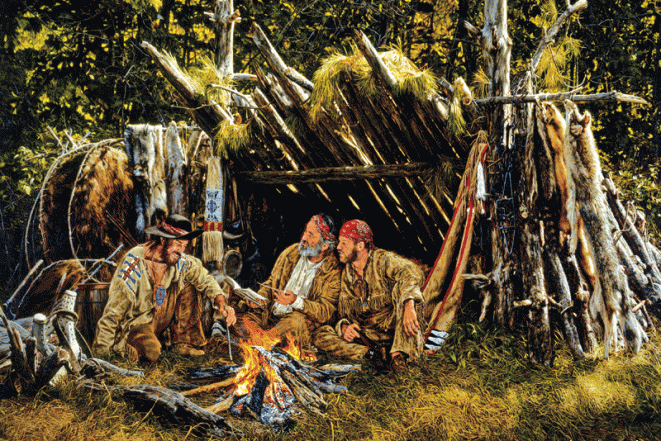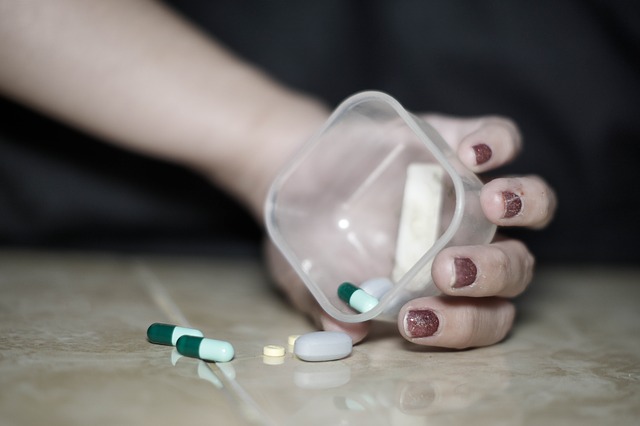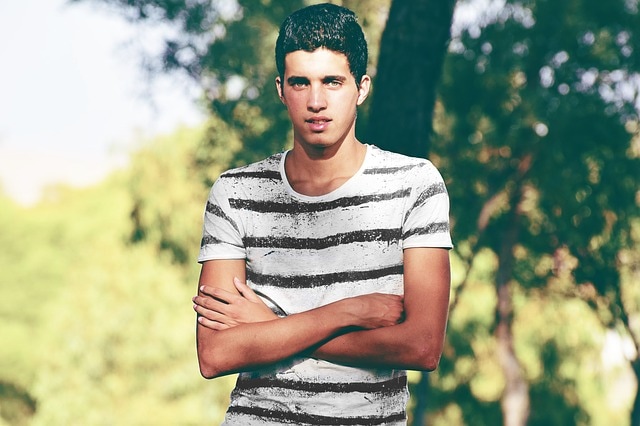You know how you stand in front of the refrigerator, hanging on the door wondering if that leftover Chinese food, still in the original boxes, is OK to eat? In our family, the answer is always, "No. When in doubt, throw it out". Can you afford to sit on the toilet for two days, vomiting into a trash can? How about a hospitalization? Nah...
That nagging sensation you feel about your child is instinctual. You can't always put it into words. You can't always say "why" someone gives you the "creeps", they just do. In the world of instinct, everything is subtle, but the mind picks everything that's threatening up, every single crumb. Why? Because your survival depends on it.
In your job of "parent", you need to stay alive, reproduce and then, protect your offspring so that they can stay alive and reproduce. Oh sure, we have all of the trappings of civility, but it really comes down to the basics of biology. Don't be fooled.
A family in Kentucky suspected that their son was using marijuana and when the K-9 team came in, 4 grams of heroin was found in a tube sock. That's about a teaspoon's worth.
Those parents couldn't live with the consequences of "hoping" that he wasn't using.

If you're concerned, sit down and talk with your teen. Get a sense of "where" things are. Without accusation and emotion, frankly explain your observations and concerns. Judge their reaction. If they get angry, hold your temper. Continue to reason about "what you are seeing" and "why" you are concerned.
Ask them what their understanding is of family privacy, specifically, their privacy. Judge their reaction. Come to an agreement about privacy as a family.
Share that, at this age, kids wants to experiment and keep up with other kids. Their brains are growing rapidly, leading them to intense curiosity and the willingness to take risks. Their brains won't be fully formed until they're about 35 years old and though they're smart, they're likely to not have the judgment to determine when behavior is "healthy" or "unhealthy'. Avoid using the words "good" and "bad".
Don't preach. Keep your comments short, to the point without emotion.
Don't be baited by questions and statements such as, "Don't you trust me?" or "I know what I'm doing". Decide what your answers will be, staying as close to the truth as you can without burning down the conversation.
Be prepared if/when they ask you about your drug use as a teen.
Don't insult them about being young and vulnerable. They don't believe it. They think they can't get pregnant, drive drunk and kill a family of 4 in a van or get hold of some bad drugs and accidentally overdose.

If you "strip search" their room, you're not likely to find anything. Kids learn from other kids the best ways to hide the stash and the stash is usually small. As I just said, 4 grams of heroin is nearly a teaspoon.
Think about how seasoned prison guards can't find a shiv in a cell with minimal furnishings and personal belongings. What chance do you stand of finding anything in your child's well-furnished room, especially if you want to search in such a way as to not disturb anything and do it in time for them to come home from school?
You may see your only choice as being that of hiring a drug-sniffing dog. With their 600,000,000 sensors, they usually find what they're looking for. Dogs don't have to turn the place upside down.

In terms of the service, I made sure that the car was unmarked and no one wore uniforms. I made sure that they parked locally and walked the dog as if a friendly neighbor. Mother or father met them on the walk. All looked quite natural. The dog was invited into the garage for a drink of water. No one would suspect. It took about 15 minutes. That's it.
In each case, the results were far worse than expected. Multiple drugs were found, both legal and illegal. In each case, parents realized some of the stash included medications taken from their medicine chest.
It's a toss up as to whether or not your kids will confront you over the loss of their "goods". But, certainly, their behavior will change; you can count on that. Your relationship is likely to be much less enjoyable or peaceful.
I asked parents to make an appointment with their pediatrician to do a physical as soon as possible including including a drug screening. I recommended that parents not share their findings for fear that the pediatrician might have different feelings about what they've done.
I referred them to a psychiatrist in the community who specializes in addiction to talk with them about where their child might be on the "scale". In terms of the substances, do the kids "Like" it? "Need" it? "Want" it? or "Crave" it? The psychiatrist explored treatment and treatment centers.
Because parents intervened assertively, the outcome was very positive. the path getting there was no less than hell itself, however, and I was not spared in the onslaught. My pleasure. At least the kid was alive enough to be angry with me. We all lived to tell the tale,
They knew the situation would only grow worse and they would lose control, either to the drugs or the courts or their child would die.
In the past 4 years, 8200 people have died from heroin overdoses. It represents a serious increase from previous years.
I wonder how many of those 8200's parents would be stronger in their approach if they had a second chance. What about their friends, siblings, spouses? So many times, we've got chance and we don't take it.
If this was your friend coming to you about her concerns, what would you say? What would you do? Would you be supportive if she hired a K-9 team?
To counteract some of the problem, significant changes are being made to prescribing practices to reduce the possibility of patients accidentally becoming addicted. New Jersey emergency room doctors are not allowed to prescribe more than 15 oxycodone pills. Research showed that when patients are prescribed more than 60 pills, they go back for refills and develop an addiction. Fifteen pills or less does not.
Research says that women who've undergone Cesarean deliveries are given way more pills than they need, contributing to the epidemic. See what I mean?
In medicine's attempt to keep up pain free, they're unintentionally enslaving us. None of us are immune to addiction.
I know what you're thinking. Dr. Claudia, would you do this? Unhesitatingly, yes. I have done it for my clients, why not my own child? I'd live happily ever after if he never spoke to me again, but was not on drugs and had a satisfying life.
It's my job to protect him. Nothing in nature's laws says that we have to love each other, but nature primed me to protect him at all costs. I'd hold my head up high, be the adult in the room and take action. I'd get out my catcher's mitt and gladly field the balls and bombs and words he would throw at me. Bring it. But you see, you're still here to hate me. I can live with that.
Several years ago, our son, now 28, told us at dinner, rather spontaneously, "If the two of you hadn't been so tough, I would have walked all over you". Yeah, that wasn't happening.
As it turns out, he was afraid of us, respected us and loved us too much to disappoint us. Respect and fear can go hand-in-hand.
You just never know what words you're going to say that will make a difference. At one point, I was fond of saying to him, "Don't do anything to disappoint Murphy" who was the most wonderful little brown boxer in the world. Our son loved him deeply and dearly and we all still choke up when we speak of Murphy, now gone for 13 years. Our son said he just wouldn't be able to look Murphy in the face and feel deserving of his total love and devotion if he did things to hurt himself. Don't disappoint your dog.
Yes, I know that this blog post is likely to create anger and serious differences in opinions, but at least, you'll think about it and be prepared with a plan if/when the time comes. None of this is easy. None of it.
Just do the best you can, Claudia
Join me on Facebook at Dr. Claudia McCulloch






